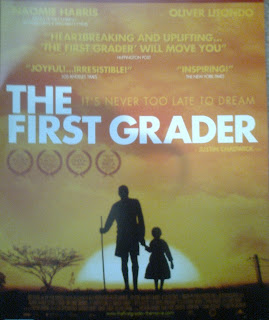Though it could easily have ended up as a tale of English exclusivity, as its trailer hinted, The Best Exotic Marigold Hotel thankfully manages to avoid those pratfalls and the result is an intelligent, Best of British piece of entertainment.
If the film had only dealt with a bunch of retired and mostly disappointed old farts being shocked and then charmed by one of their former colonies, it would have been a huge disappointment.
The old farts, of course, are the cream of the crop of Britain’s more senior actors, though John Hurt is missing, and obviously they deliver.
There are minor problems, like Tom Wilkinson’s gayness, which is somewhat laboured. That doesn’t mean its storyline isn’t affecting; it is, very. So, too, Celia Imrie and Ronald Pickup’s characters, who seem a little incomplete, less meaty than Maggie Smith’s old racist governess and Judi Dench’s trusting housewife who got screwed, but these are minor quibbles. Penelope Wilton's very necessary and desperate social climber who clutches on to things British for all she's worth is a gem, just as Bill Nighy proves Pink Floyd's dictum that "hanging on in quiet desperation, it's the English way".
On the whole this is top-notch ensemble acting, and it doesn’t do us any harm to see the noise and rich colours of a place that is not Los Angeles.
The real comedy, however, is that the tiny, colonizing island with the mighty language is old and exhausted, like our leading actors, whereas the older and larger once-colonised culture is much more complex, inventive and, ultimately, younger.
This is signified by the youthful Sonny (Dev Patel, of Slumdog Millionaire fame), who is struggling against a thousand obstacles to be himself and marry the girl of his (and quite a few of our) dreams, Sunaina (the exquisite Tena Desae).
Without them the film would have fallen flat and felt desperate, though director John Madden hasn’t done his point or producers any favours by making our two youthful lovers kiss each other – somewhat awkwardly - on screen. In India, which has a massive audience, kissing on screen and stage is still strictly verboten.
Just ask Richard Gere.
Neil Sonnekus
* Since this is my 100th posting and I now have a paying job, I think it's time to take a break from publishing weekly. If and when I publish it will because I think I have something to say and feel strongly about, otherwise not. Thank you very much to those who have "followed" me and commented. Cheers.


